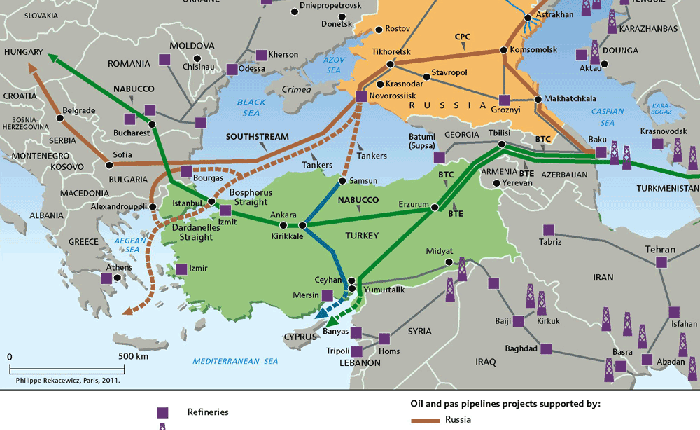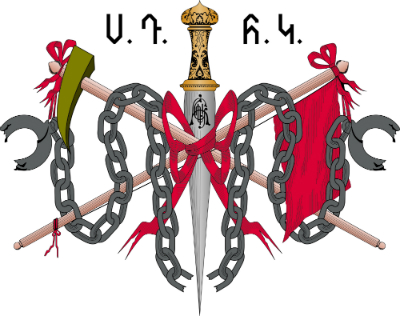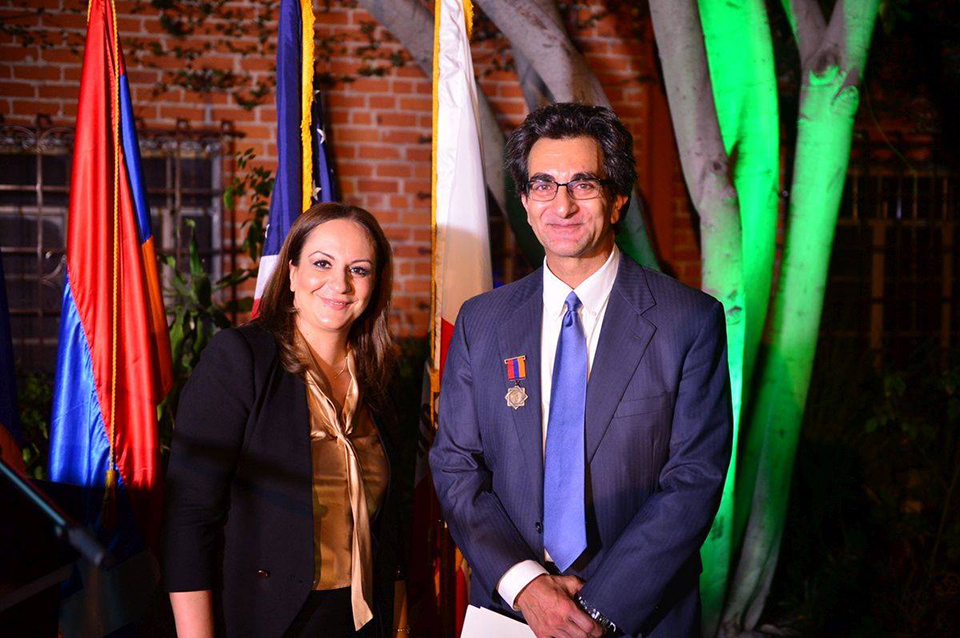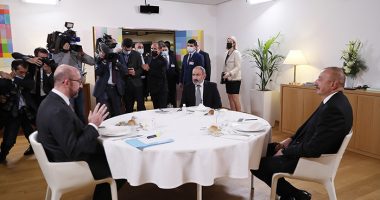Referring to our recent article “Crucial Months”, a group of friends, finding our analysis very relevant, asked us to elaborate. They also asked what guarantee we have that the current government of the Republic of Armenia will be able to orient itself correctly, at the same time making it clear that talking about the Kocharyans is just a waste of time.
Let’s start with the second point and answer briefly. We have no guarantee. When we look back at the more than 300 articles we have written over the past 30 years, we often come across cases where time has proven the validity of our theories and suggestions, but the erroneousness of the practical steps taken by people in power. Why did this happen? Because narrow personal and sectoral interests took precedence over our national interests. When that’s the starting point, then there can be no guarantee. We have no other explanation.
The starting point of all our articles has always been to unselfishly analyze the facts and present our thoughts as to what best serves our national interests. We have always preferred to focus on the words and deeds of the person, looking beyond the personality. We also published an article about that in the November 19, 1994 issue of “Massis” entitled “Who said, or … what did he say?” There, we suggested that we approach the issues not with prejudice, but with an analytical mind. Only by adopting such an approach can we succeed in discussing events and ideas objectively and not succumbing to the emotional temptations of personal preferences. In doing so our path becomes sounder and firmer and we avoid taking a contradictory position on the same data at different times, thus wasting our energy.
Let’s move on to broadening our scope. We are nationally aware that Armenians have been able to achieve great success on an individual level, but on the collective level we have remained a “small nation”. Contrary to this awareness, which is best summarized by the Charentsian message, “O Armenian people, your only salvation is in your collective strength,” why have we failed to turn that consciousness into a cultural way of thinking and pass it on to leaders and generations to be guided by that message? Why don’t those who pursue the same idea unite around a single program and implement it collectively, instead of pursuing the implementation of that program separately? Why does the opposition criticize one position of the government, but when it comes to power, it acts like its predecessor? Why is the tribal-sectarian mentality still prevalent in us, instead of the national one?
The New World Order and Us
Today’s pressing issue is how we should orient ourselves towards the emerging new world order. What is beneficial for our nation? Should we remain under Russian influence or should we open up to the West? This is an issue that should be publicly discussed impartially, without antagonizing each other. The unfortunate thing is that when we are still arguing over the history of our recent past to the extent of neutralizing each other, then how can we reach an agreement on the future? However, if we are to have our place in the emerging world order, we must get rid of tribal thinking and adopt a “collective strength” mentality. We must impartially analyze the problems we face and discuss ways to solve them, always prioritizing our national interest.
It is evident that with the fall of the Berlin Wall and the collapse of the Soviet Union, the bi-polar world order became uni-polar for a short period of time and is about to return to bi-polar rivalry between the United States and China. The latter, recognizing the significant role played by the economy, world trade, and information technology in spreading its influence, will be a much more serious competitor to the United States than the Soviet Union. The first nation to conquer outer space has fallen far behind today’s pair who have conquered Mars. And until this new bi-polarity is established, we are witnessing multi-polar competition, where it is especially important for us to understand the positions taken by Russia, Turkey, Iran and the European Union (EU) and to orient accordingly. An important role in this competition is also played by the regime adopted by the given country. While the US and the EU attach importance to the spread of democracy and promote countries with such regimes, the others have authoritarian regimes and prefer to see similar countries around them. How realistic is it for us to adopt such a regime when we are witnessing popular unrest and outbursts in countries with authoritarian regimes? Again, this is a serious matter that should be discussed in public, based on factual data and not on slander or treacherous labeling.
The Turkey-EU Factor
Democracy in Turkey is in decline, and both the United States and the European Union are imposing sanctions, among which is President Biden’s recognition of the Armenian Genocide (as well as the US House of Representatives’ proposal today to end military aid to Azerbaijan). We also see that 55% of Turkey’s exports go to the EU and 73% of incoming foreign investments are from EU, which shows the degree of EU influence on Turkey. So, when the EU plans to allocate about $3 billion to Armenia, how appropriate is it to label this as the “sale of Armenia” and complain about it? We should rather welcome it as one element in thwarting Turkish threats on us. We also see that through the ”Zangezur Corridor” over Armenia, Turkey wants to connect with Azerbaijan and reach Central Asia. Why not counter this danger with the construction of the Iran-Armenia-Georgia “North-South” highway, which connects us to Iran, India and China further south and to Georgia and Europe further north? One hundred years ago, we went through a similar situation when Ottoman Turkey was trying to reach the Baku oil wells. We delayed that march with our victory in Sardarabad. It was then stopped first with the end of World War I, and two years later with the Sovietization of Armenia.
The Russia-EU Factor
On the other hand, when we look at aligning with Russia the question arises as to how beneficial it would be when we have the following main events in mind:
1) Contrary to our strategic alliance treaty with Russia, why did it behead our statehood on October 27?
2) Why did it (through his tool Kocharyan) take over institutions of strategic value to our sovereignty through the $100 million “property for debt” meager deal?
3) Why did it forbid us to partner with the EU and instead forced us to join the EEU, dictating that it would be preferable to have security under its (CSTO) protection than to open up to the West?
4) Why should we still rely on the CSTO when it did not ensure our security and still does not prevent Azerbaijan’s attacks on Armenia and the release of alleged prisoners of war?
It becomes evident from these that Russia is either incapable to withstand Turkish-Azerbaijani pressure or uses us as shortchange to please our enemies. In both cases, the situation forces us to look for counterbalances, the best of which is to partner with the EU under the leadership of France. Let us not forget that France and the EU also want to assert their sovereignty in the emerging world order led by the US-China competition. Apparently, Russia intends to do the same, getting closer to Turkey, which is contrary to our national interests. Thus, a hundred years later, once again, we find ourselves “between the hammer and the anvil” of Russia and Turkey.
The Oil Factor
It is clear that in the new world order oil will not play the important role it played in the 20th century. This reality is forcing the United States and China to calculate their relations accordingly. Therefore, the importance of countries whose main revenue source is derived from oil will decrease. Importantly for us are oil-rich Azerbaijan and Iran, and especially Russia. For this reason, Azerbaijan is trying to get the maximum benefit from us as soon as possible, because time is not in their favor.
We conclude from all this that it is not in our best interest to submit completely to Russia, which is retreating in the fields of economy and information technology, and it is time to balance its influence by strengthening our ties with the EU. It is very likely that under Russian pressure Kocharyan was released from prison to run in the snap elections, with the expectation that he could return to power and again serve as a tool for Russia. The result of the election proved that he was rejected by the majority of the citizens of Armenia and to continue to support him means to oppose the Armenian people, with all its consequences.
The EU-OSCE Factor
The November 9 agreement is generally regarded as humiliating by overall Armenian political factions. The best way to counter it is to return to negotiations under the auspices of OSCE. OSCE Co-chairs France and USA are advocating such a move. Azerbaijan and Turkey are opposing it. That move is beneficial for us and we could play a small role in the rapprochement of Russia and EU. What is preventing us from taking assertive action in that regard?
In light of all this, how will Pashinyan’s new government be oriented? Will he succeed in this second mission? The beneficial outcome of this situation for our nation is not to blame each other with mutual insults, but to seek solutions through “collective strength.” In this regard, we find the initiatives of Eduardo Eurnekian, Jivan Cheloyants, Ruben Vardanyan, Noubar Afeyan and others promising.












1 comment
Mr Der-Tavitian excellent article resonates with me.
Mr Der Tavitian says :
” We must impartially analyze the problems we face and discuss ways to solve them, always prioritizing our national interest”
AND
” We also see that 55% of Turkey’s exports go to the EU and 73% of incoming foreign investments are from EU, which shows the degree of EU influence on Turkey.
Would it be fair for me to add:
– that our tribe accords more importance to itself than the rest of world does!
– that our tribe needs, not forget, but put its tragic history behind it and move on.
– that over past years, Armenia has been punching above its weight with the help of “others”? and these “others” now, have better offers.
– that Armenia should concentrate more on the future of the young and the not so young and the old and less on planning to regain lost lands by military means.
– that it is wiser to use the millions of dollars spent on the military sector, on the economy to halt the brain drain, improve the quality of life of the population and hopefully encourage immigration from the Diaspora?
– that Armenia should consider reforming the Army along the Swiss Army model; (Caveat : after signing a defence pact.)
Armenia could rise to be the dynamo of the Caucases as Israel is of the Middle East.
Country Area in sq. km Population ML Diaspora ML
Armenia. 29,743 2,969,454. 5,000,000
Israel. 21,937 9,291,000. 8,000,000
It is time Armenians accepted the present and looked forward to a bright future. Hopefully, in years to come, the population of Armenia will be 7,000,000 million and the Diaspora one million.
Vahé Agababian